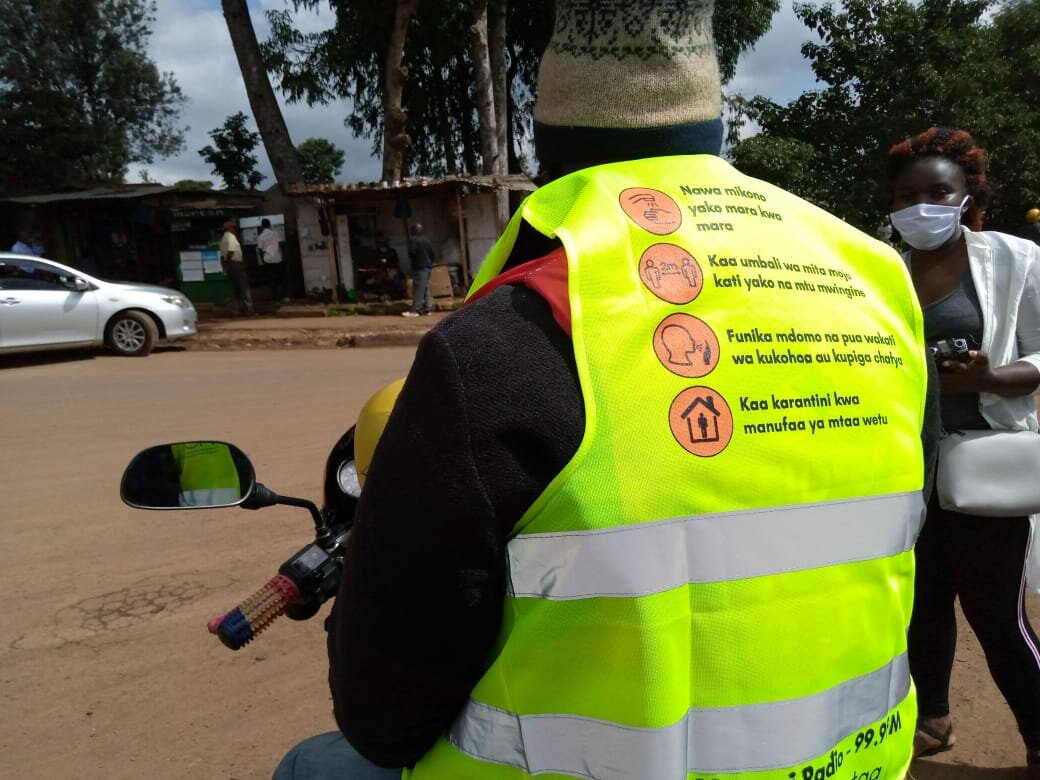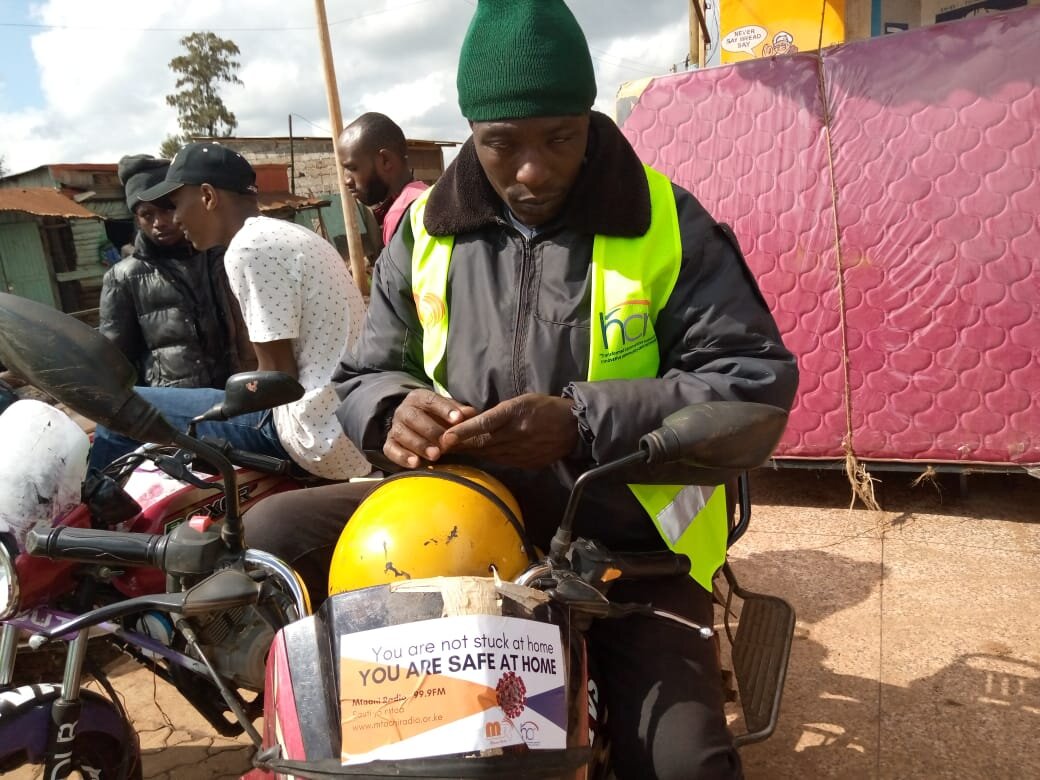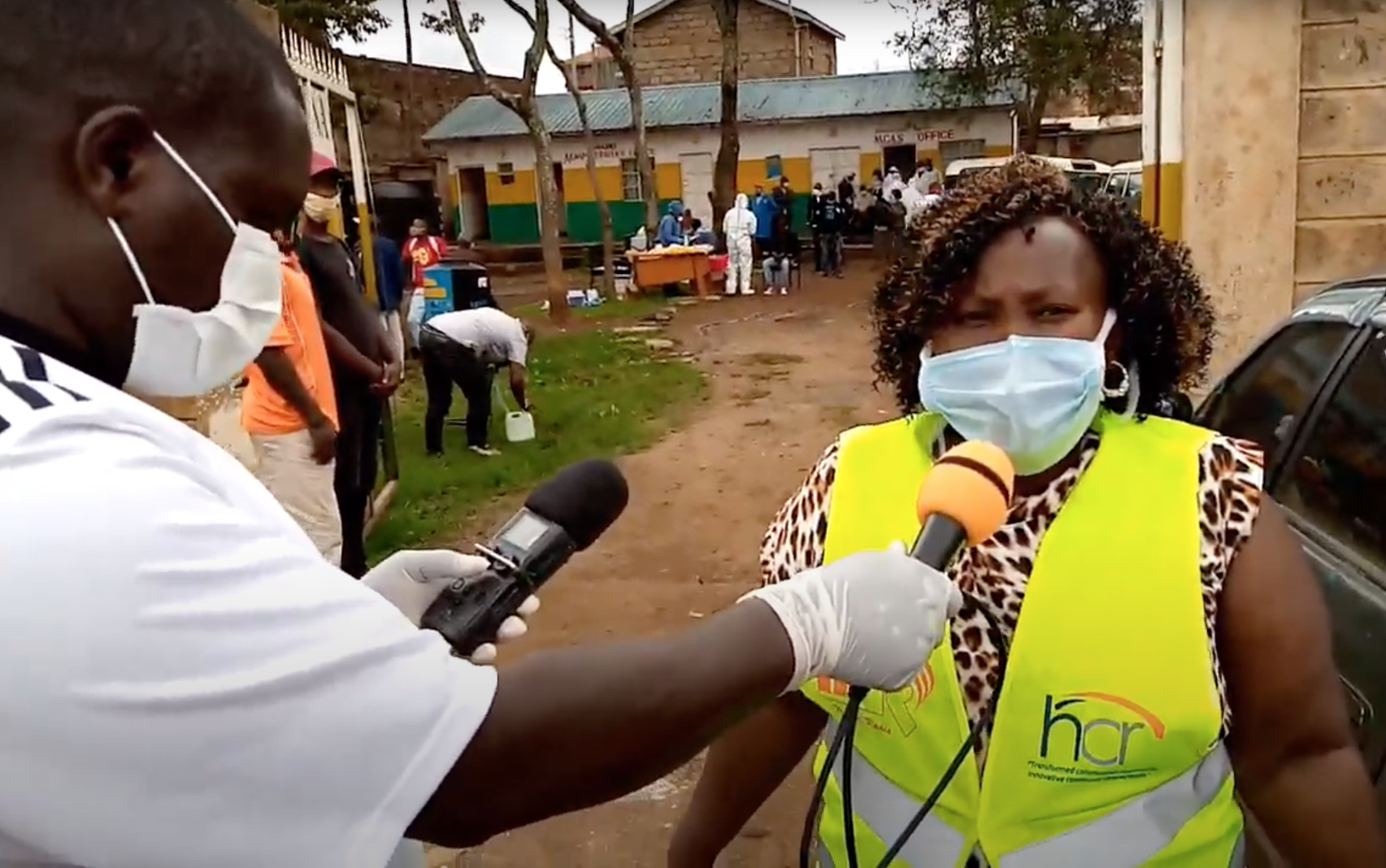By Jon Hargreaves
As the number Covid-19 cases begin to rise dramatically in Kenya, health authorities have been urging communities to stay at home, observe physical distancing and not to go back to work. However there is a major concern that many young people, particularly in Nairobi’s informal settlements, are not heeding the warning.
To that end, Mtaani Radio, in partnership with Health Communication Resources, has launched a “nudge” campaign to encourage healthy practices among the city’s young people, particularly in the informal settlements.
“Young people have so often felt ignored and disenfranchised by society, that health messages haven’t been getting through to them,” says Mtaani Radio’s station manager, Kelvin Nyangweso. There are also a lot of rumours, fake news and misinformation circulating, especially on social media, that is confusing the issue. The campaign is engaging with young people, involving them and empowering them to adopt practices that will reduce the risk of getting or passing on the Coronavirus.
“We’ve been making radio programmes and ‘phone-in shows specifically for and with young people at this time,” says Kelvin. “We’ve also launched a major poster and sticker campaign around the town, and issued Bodaboda (rickshaw) drivers and health workers with special high visibility jackets, with positive health messages on them,” he said.




High viz jackets, posters and radio - engaging young people in Nairobi about Covid19
(Photo Credit: Mtaani Radio)
Lockdown however is a stark choice for many Kenyans, as if they can’t work, they can’t eat. As one person commented on Mtaani Radio’s Facebook page, “People have no choice but to ignore lockdown, or they will starve.”
Another specific concern is that practices like physical distancing and regular hand-washing can be exceptionally difficult to put into practice in densely populated, informal urban settlements. Overcrowding makes the one-metre separation rule impossible and many lack access to basic services like water and sanitation. According to the World Health Organization, more than 400 million people in urban areas in sub-Saharan Africa and South Asia lack access to hand-washing facilities, heightening the risk of the disease spreading rapidly in heavily populated communities.
At such a time like this Mtaani Radio, known in Swahili as “Sauti Ya Mtaa”, or voice of the street, has a vital role to play. The station doesn’t talk to the community, it talks with the community, allowing people to ask questions, tell their stories, share their struggles and encourage each other both in word and action.

